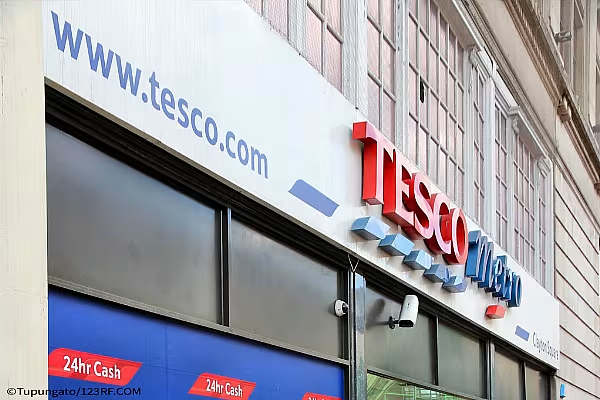UK retailer Tesco, which announced its first-quarter results today, does not anticipate a price rise due to commodity inflation.
Speaking at a conference call, CEO Ken Murphy said, "We have seen commodity inflation work its way through the supply chain, interestingly we have also seen a couple of elements of deflation.
"While there is no doubt that it's something we have always had to manage, at this point, we do not anticipate it impacting pricing. We are working hard to mitigate any potential inflation that may come through."
Local Sourcing
The company is working closely with local producers and said it would remain "responsive" and "flexible" to ensure the availability of goods.
Speaking on supplies to Northern Ireland, Murphy said that Tesco's objective is to minimise the impact on customers and focus on local sourcing for meat, dairy, and crisps.
He added that the focus would be to optimise the movement of goods in the best and cost-effective way.
Last month, Tesco asked some suppliers to commence shipping products to Ireland themselves in a bid to minimise Brexit-related red tape.
Murphy added that the company is working "exceptionally hard" to address the shortage of lorry drivers.
He said, "We are really happy with the availability we have been able to maintain since the issue started.
"We work hand in glove with our suppliers to maintain availability, and we are also working exceptionally hard in terms of our driver numbers and making sure we can keep that availability very high."
Speaking on the decision to end the purchasing alliance with Carrefour, Murphy said that the alliance achieved its goals and reached the end of its natural life.
Guidance
Tesco kept its profit guidance unchanged amid an 'uncertain' scenario.
Murphy explained, "We see uncertainly in how big the eat-in market will be in three months, six months and nine months, how customers will respond to the final level of the lifting of restrictions, whether or not they will be able to travel, what the economic perspective looks like from a job perspective [...] We see a lot of environmental volatility, and, therefore we felt the right thing to do was to maintain guidance at this point."














